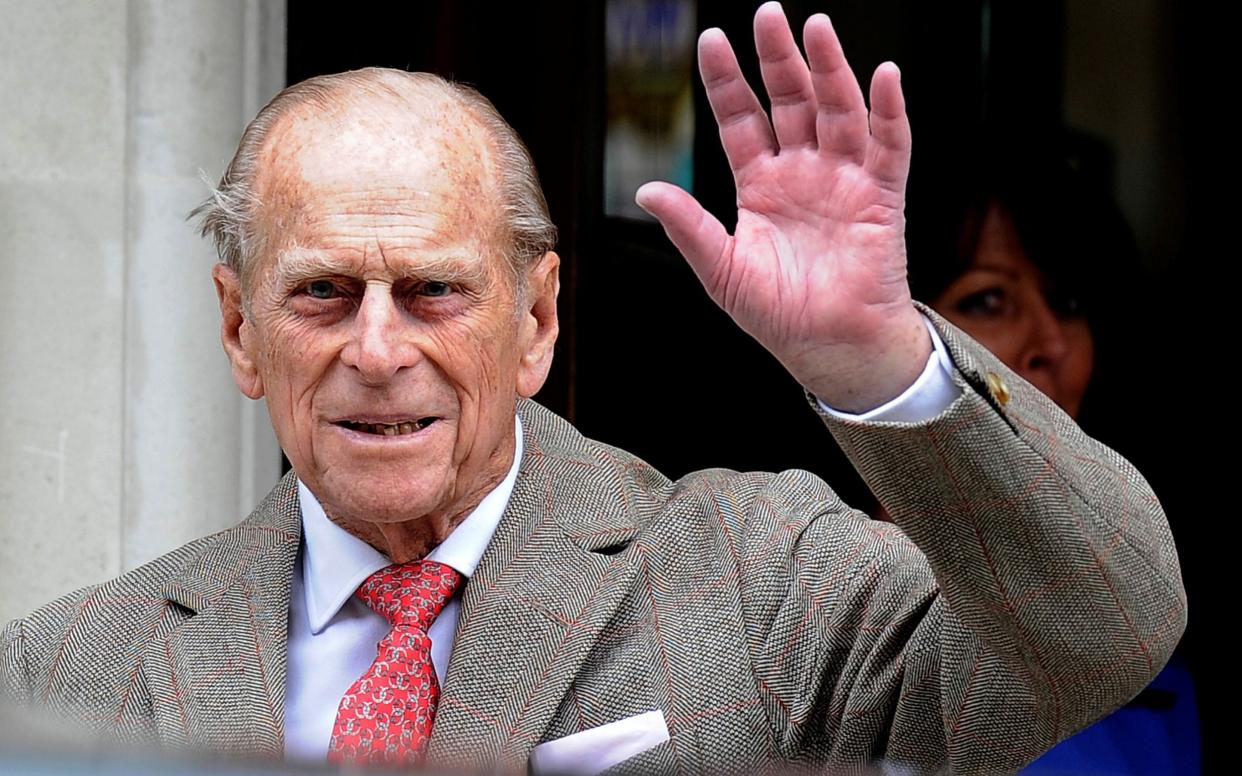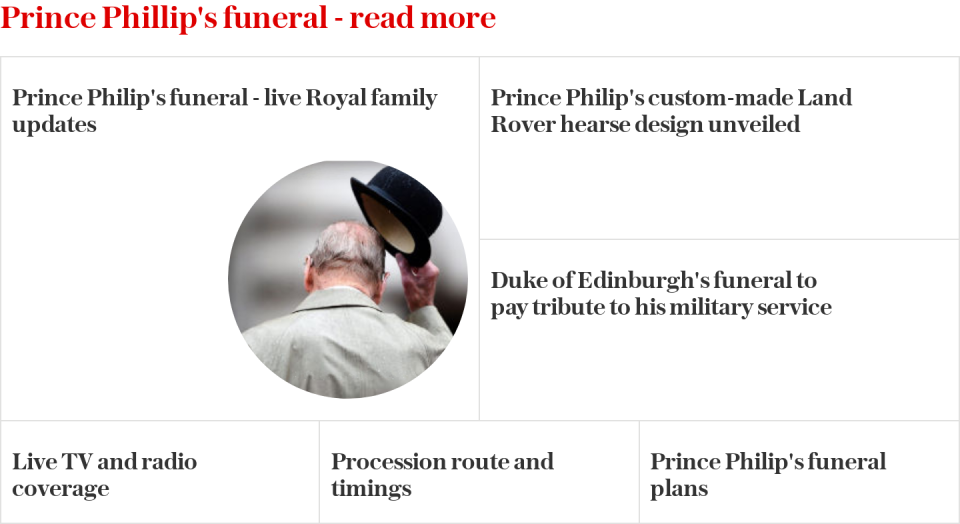Prince Philip's funeral music includes two pieces written at his request

- Oops!Something went wrong.Please try again later.
- Oops!Something went wrong.Please try again later.
- Oops!Something went wrong.Please try again later.
- Oops!Something went wrong.Please try again later.
Prince Philip famously asked Tom Jones whether he "gargled with pebbles" after the Royal Variety Performance in 1969, adding the following day: "It is very difficult at all to see how it is possible to become immensely valuable by singing what I think are the most hideous songs."
So perhaps it is hardly surprising that the Duke of Edinburgh took a close personal interest in the songs that will be sung at his funeral in Windsor Castle on Saturday.
With the congregation banned from joining in due to coronavirus rules on indoor worship, a four-strong St George's Chapel choir will perform the only hymn, William Whiting's Eternal Father, Strong to Save, and three additional songs, two of which were written according to Prince Philip’s wishes.
The first, The Jubilate, was written by the English composer Benjamin Britten for the St George's Chapel choir at the request of the Duke. Literally meaning "song of joy", the 14-line composition in the key of C speaks of "serving the Lord with gladness" and going into God's "gates with thanksgiving".
Referring to the Lord’s truth enduring "from generation to generation", it ends: "As it was in the beginning, is now, and ever shall be: world without end. Amen."

Both the Queen and the Duke dined with Lord Britten after attending the premiere of his seventh opera, Gloriana, about the reign of Elizabeth I in 1953, which was presented as part of the celebrations of the Coronation that year.
Prince Philip is believed to have asked him to compose settings for both the Jubilate and the Te Deum for the St George's Chapel choir in 1958.
A champion of classical music, the Queen then appeared alongside Lord Britten to open a new concert hall in his native Suffolk in 1969. Lord Britten died in 1976.
Conducted by James Vivian, the chapel's director of music, the quartet of singers – which includes three lay clerks of the choir – will also sing a version of Psalm 104, set to music by celebrated guitarist and composer William Lovelady at the Duke's request.
Originally composed as a cantata in three movements, it was first sung at his 75th birthday in 1996. The 28-line song, which contains references to the seas, nature, animals and the riches of the Earth is thought to relate to the Genesis creation narrative in the Bible.
Frequently played on Radio 3 and Classic FM, having worked with musicians including Julian Lloyd Webber and Art Garfunkel, Mr Lovelady provided the soundtrack to several programmes by the naturalist Sir David Attenborough, a close friend of the royals. The cantata is regularly performed at St George's Chapel.
Eternal Father, Strong To Save – better known by many as For Those in Peril on the Sea – is considered especially poignant by military sailors. It was also sung in 1979 at the funeral of The Earl Mountbatten of Burma.
Accompanied on the organ by Luke Bond, the chapel's assistant director of music, the choir will also sing the Russian Kontakion of the Departed, translated by William John Birkbeck and arranged by Sir Walter Parratt.
The ancient Kiev chant, with its origins in the Russian Orthodox liturgy, expresses the sorrow of grief while reiterating the Christian hope of everlasting life.

